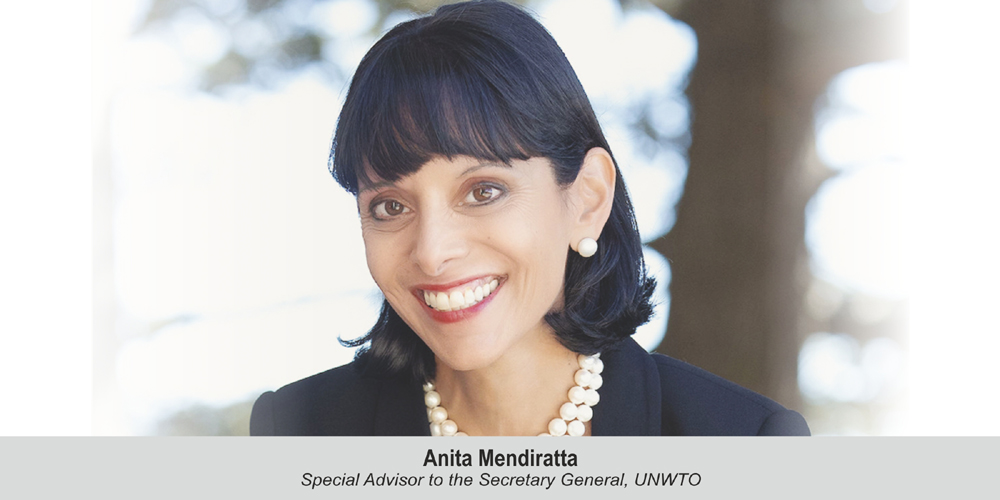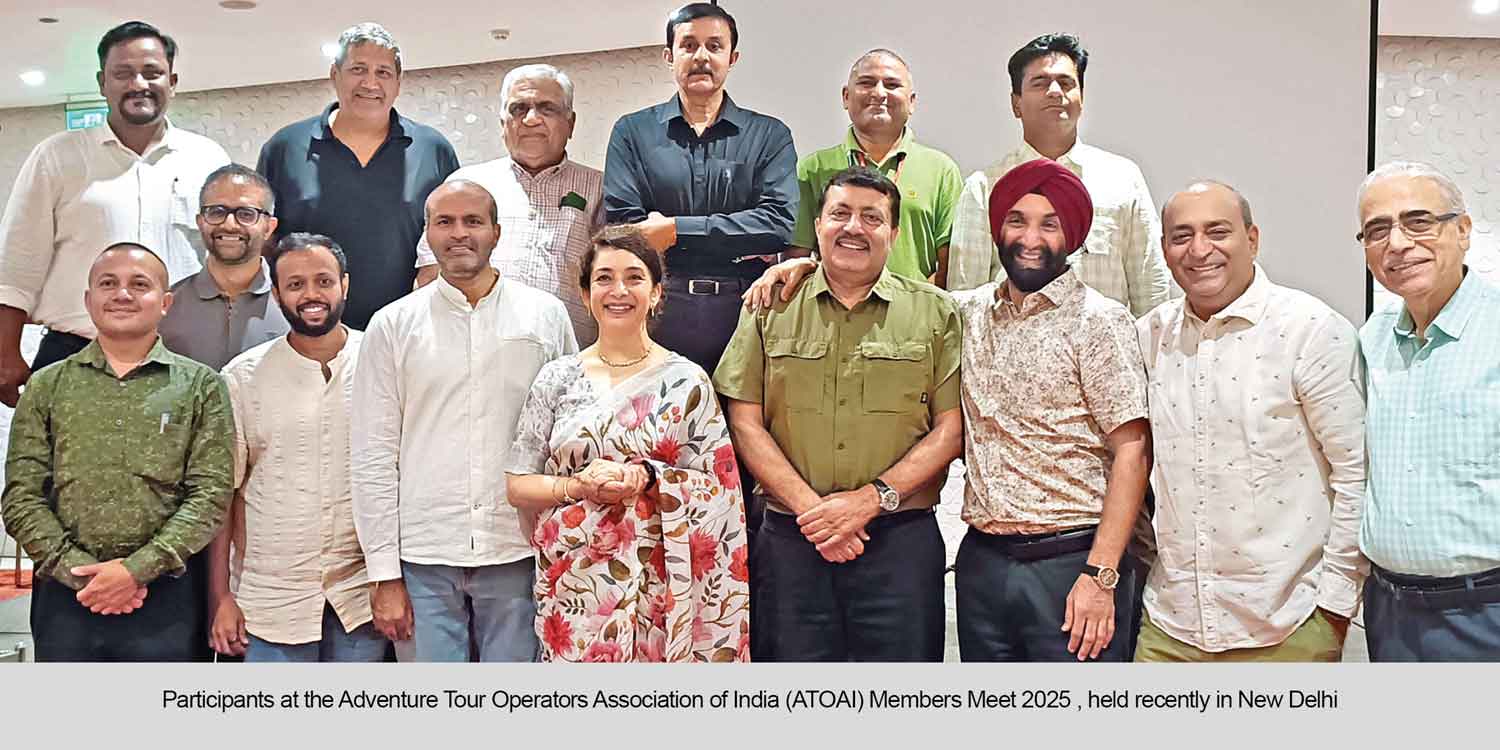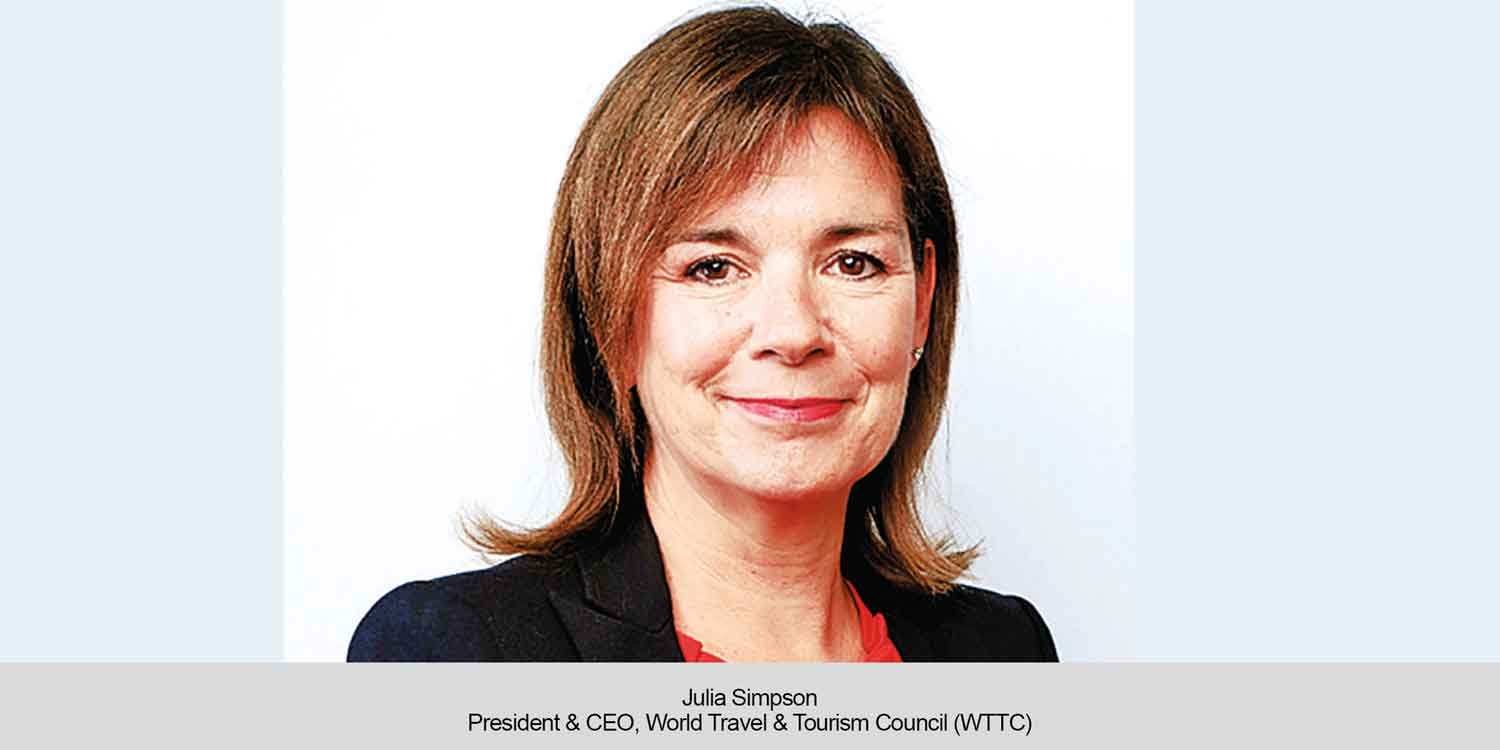Way ahead is not about identifying what is plaguing industry, but innovating and strategising, says Anita Mendiratta.
Nisha Verma
For Anita Mendiratta, Special Advisor to the Secretary General, UNWTO, travel started as a young girl from Canada, who used to visit India to meet relatives frequently. However, she entered the travel and tourism industry through serendipity. With classical marketing her background, she ended up being in charge of a project on nation branding.
“I started getting into marketing initiatives around that and loved it. But there was a piece missing and that was the economic development side. Hence, 20 years ago, I started my own business, focusing on tourism and development to make sure that any country or business utilising the tourism industry, is working for the benefit of the country, its people and economy of the country, environmentally as well as for businesses. Today, COVID-19 has exposed the world to the importance of travel and tourism. It has shifted my work to know and help rebuild countries and businesses through tourism in better way,” she said.
Learnings
Claiming that the last two years have changed the tourism industry fundamentally, Mendiratta said, “It’s the first time that our world has suffered one single crisis across nations, which is invisible and has hit everyone in significant ways. Firstly, the values of travel have changed. By not travelling, our lives have been impacted emotionally and physically. Travel and tourism is profoundly important to local economies. With countries being hit by COVID, shutting down and opening up repeatedly, everyone has felt the impact of small businesses that didn’t have earnings,” she highlighted.
She added, “The values of travel have also changed in the way we used to travel, being able to go anywhere, anytime and as cheaply as we wanted. People have realised the importance of making that human connection and therefore stay longer, get more immersed and understand the people behind the places, not just take the photograph and go.”
Secondly, we are all interdependent fundamentally. “We’ve seen how a health care crisis triggered an economic crisis, which in turn triggered the travel and tourism crisis. Hence, unless we get the healthcare sorted, travel and tourism don’t have a chance of recovery,” she said.
UNWTO initiatives
She said UNWTO reached out to World Health Organisation (WHO); ICAO, which is the UN body for aviation; international Maritime organisation (IMO), and International Labour Organisation (ILO). “They all started working together. It’s not just the emotion of travel, but engineering of travel has become stronger. Zurab Pololikashvili, Secretary General, UNWTO, has always said that trust is the new currency. Going forward, travellers need confidence not just about not falling sick with COVID when they travel, but confidence that your flights won’t get cancelled or you won’t suddenly be quarantined. Hence, UNWTO immediately at the beginning of the crisis, in addition to connecting with other UN agencies, also connected with the UN member states and all UNWTO member state countries and affiliate members, so that everyone had a place to not only find solutions, but to understand the problem,” she informed.
What’s next?
She claimed that travel industry had been growing quickly and steadily that it forgot to take care of frontline workers in terms of salaries and lifestyles, as well as ignored the studies on overcrowding and sustainability. “We shouldn’t waste this opportunity to reinvent and re-inspire people to come back to the industry and re-engineer in a stronger way,” she said.
Innovations
Innovation during COVID became very much about generosity of spirit, rather than simply create something and then IPO it, said Mendiratta. “Everyone started attending conferences without charge. The generosity of spirit of sharing ideas, sharing problems and getting feedback became important,” she said.
Destination marketing
As destinations rebuild, said Mendiratta, they are getting a chance again to make a first impression. “Today, they can’t use the 2019-20 strategies because we’re in a different world. It’s important to recognise that everyone is competing with everyone and every destination is restarting. Hence, there needs to be a choice-making of exactly what you stand for as a destination and who you are trying to attract and why,” she said.
However, she insists that we shouldn’t lose the value of domestic tourism. “Had it not been for domestic tourism, a lot of countries wouldn’t have survived. It raised the baseline in terms of year-round visitation, dispersion of travellers, number of travellers and spend. By switching back to regional and international travellers, we will waste the opportunity to get the baseline lifted. Hence, domestic tourism must remain at the heart of the strategy, with international and regional strategies complimenting it and not becoming replacements to that strategy,” she advised.
Power of sustainability
“I think that mother nature was a tourism practitioner in her last life,” said Mendiratta. “Sustainability has been redefined through COVID. We’ve recognised that sustainability is environmental, but it’s also economic sustainability, cultural sustainability, social sustainability, and spiritual sustainability. The future is to make sure that all these are in balance,” she added.
Women in travel
Saying that women are already the majority of the tourism workforce, Mendiratta claimed, “However, the role of women have usually been in the lower paying and lower levels of the workforce. This is an opportunity to make sure that we institutionalise this and make this part of our policies. The UNWTO is working on Center Stage Project, which is about women’s empowerment,” she concluded.
 TravTalk India Online Magazine
TravTalk India Online Magazine








